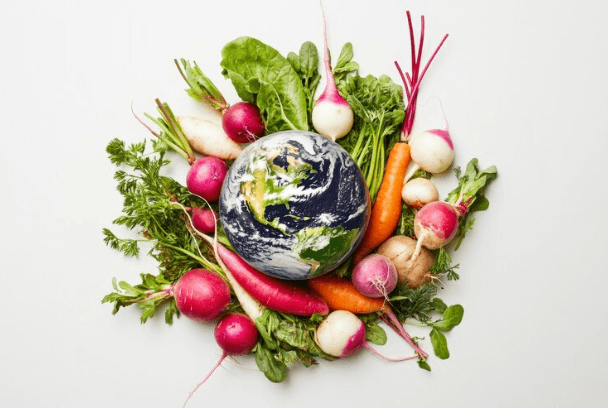Food Sustainability: A Complete Guide to a Healthier and More Conscious Future
Food sustainability is at the forefront of discussions about health, the environment, and global well-being. But what does this concept really mean? What are its main features, and how can it benefit society? This article dives into these topics and answers the most frequently asked questions about food sustainability.
What Is Food Sustainability?
Food sustainability involves producing, consuming, and disposing of food in a way that minimizes environmental impact, promotes social equity, and ensures food security for future generations. It links human and environmental health, considering resource efficiency, waste reduction, and balanced, ethical diets.
The United Nations’ Food and Agriculture Organization (FAO) emphasizes that sustainable food systems must protect ecosystems, improve nutrition, and support local economies.
Key Characteristics of Food Sustainability
- Ethical and Responsible Production
- Practices that respect the soil, reduce the use of agrochemicals, and protect biodiversity.
- Emphasis on local and organic farming practices.
- Reduction of Food Waste
- Conscious planning of purchases and consumption to minimize losses.
- Techniques such as composting organic waste.
- Plant-Based Diets
- Focus on plant-based foods, such as fruits, vegetables, and grains, which have a smaller environmental footprint compared to meat production.
- Support for Local Economies
- Buying food from local farmers and suppliers reduces emissions associated with transportation and boosts regional economies.

Benefits of Food Sustainability
- Positive Environmental Impact
Sustainable practices reduce carbon footprints, conserve biodiversity, and protect natural resources like water and soil. - Improved Public Health
Diets rich in fresh, minimally processed foods are associated with a lower risk of chronic diseases such as diabetes and obesity. - Global Food Security
Sustainable food systems ensure resources are available to feed a growing global population. - Local Economy and Growth
Supporting regional food production strengthens communities and reduces external dependencies.
Frequently Asked Questions About Food Sustainability
1. What does “eating sustainably” mean?
Eating sustainably involves consuming foods produced ethically, with minimal environmental impact, and in a way that supports a balanced diet. This includes prioritizing local and seasonal foods, reducing meat consumption, and minimizing waste.
2. Is adopting food sustainability expensive?
While organic or local foods may initially cost more, strategies such as meal planning and buying in bulk can help balance expenses. Moreover, sustainability often leads to long-term savings by reducing waste and healthcare costs.
3. What foods are considered more sustainable?
Fruits, vegetables, legumes, whole grains, and locally sourced or seasonal products are examples of sustainable foods. Moderating animal protein intake and replacing it with plant-based alternatives like tofu and lentils is also recommended.
4. How can I reduce food waste at home?
Simple practices such as meal planning, proper food storage, and repurposing leftovers can significantly reduce waste. Apps that track expiration dates can also be helpful.
Conclusion
Food sustainability is vital for balancing the needs of a growing population with the imperative to protect the planet. Small daily changes, like choosing local foods, reducing meat consumption, and avoiding waste, can make a big difference.
By incorporating these principles into your routine, you contribute to a healthier life and a sustainable future for everyone.
If you liked this content, share it on your social networks or with friends who are also looking for health and wellness tips. Explore more tips on our website! Click here.






Leave a Reply